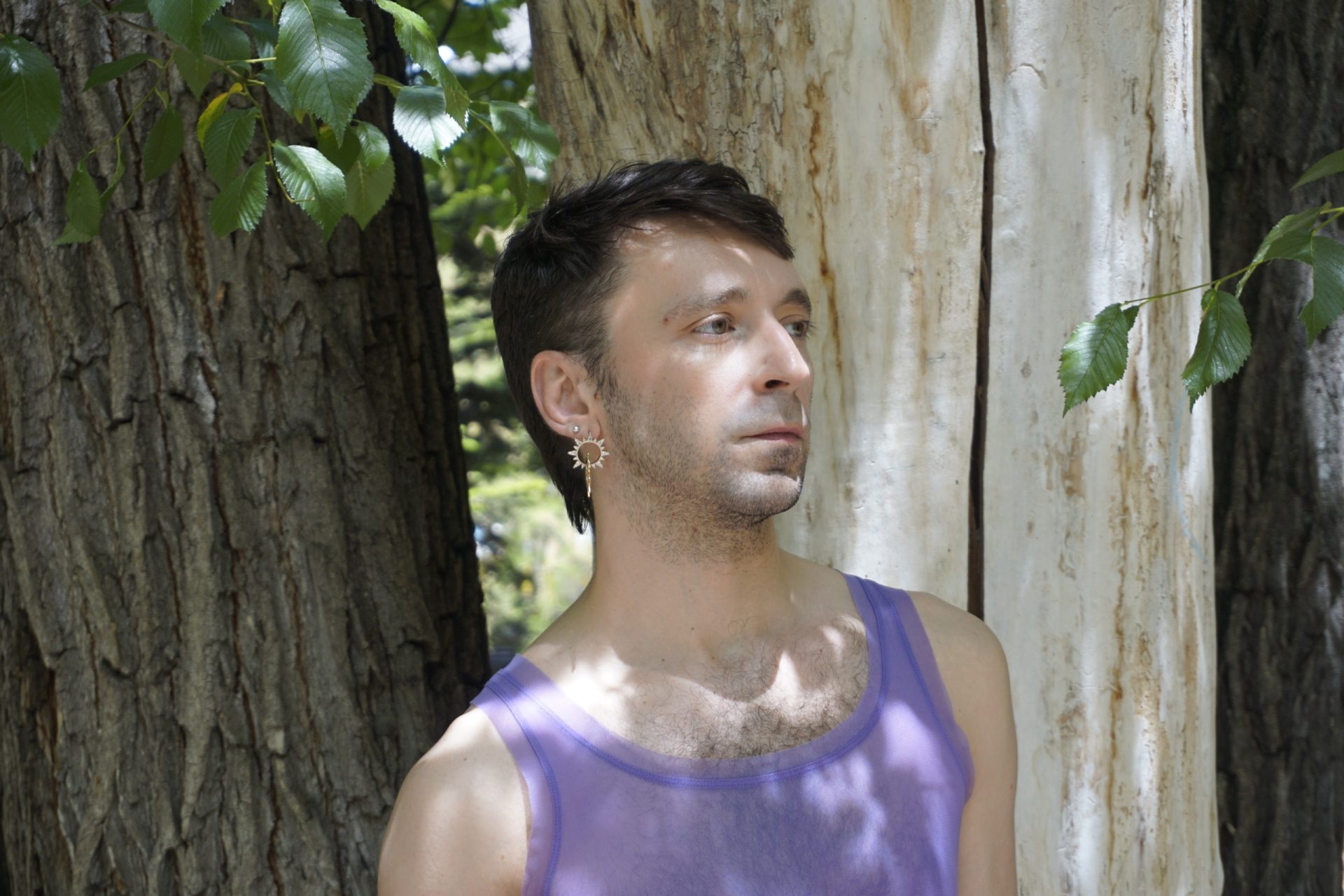Words & Photos: Lavinia Ionescu
November 2023
For me a safe(r) queer space is something soft and warm where all participating bodies are treated with respect regardless of color, age, ability, orientation, identity, and class.
— Paula Dunker (artistx).
Bucharest, the administrative and cultural capital of Romania. Eastern Europe. Europe.
I am here – we are here.
In a society where tensions towards the LGBTQAI+ community are manifested locally and globally, I wish to show the importance of queer safe spaces. Make this journey with us to see how we manage, what accomplishments, aspirations and dreams we have. What our past has taught us, how our present is and how we represent our future – from here, from the “edge of the empire.”
I’d like to live in a world that accepts, enjoys, and encourages diversity. A world that develops horizontally, making each of us a reason for joy. Regardless of whether we align with mainstream gender norms or sexual orientation, whether we are trans, cis, non-binary, agender, gay, lesbian, straight, or bisexual, everyone has the right to choose their own identity and live their life in society with their loved ones. A world with arms wide open, a world that welcomes us all.
A lot has happened in Romania in recent years. For a while, the future seemed bright. Especially after 2001, when Article 200 of the Penal Code finally decriminalized sexual practices between partners considered to be of the same gender. Over time, as a community, we have gained the courage to express ourselves and overcome the fear of venturing out into the world. And I don’t want to reinforce the stereotypes that suggest that there were no queer people in Romania before the Revolution of 1989.
Increasingly, over the last decade, the LGBTQAI+ community has found resources to shape their own narratives, to coagulate into a vibrant and supportive local community where the vital need for safe spaces is met, and where they support and encourage each other. It has become a reality. The LGBTQAI+ community is constantly seeking to build bridges of dialogue and cooperation with queer communities in other parts of the world, to propose anti-discrimination public policies; to support and celebrate the spaces where they feel truly protected, understood, free to express themselves. And here, I am not only thinking about the physicality of a place, but also about other possibilities of connection – in thoughts, in affinities, in feelings.
I often wonder about the safe spaces that exist in my city, Bucharest, for the LGBTQAI+ community. I often think about what these safe spaces are and why they are important to us. For me, first and foremost as a person who identifies as a woman, then as a bisexual polyamorous person, there is a need and a constant search for peace, from which the feeling of joy of being can grow. A positive record of my nervous system that, here or there, I can feel safe and not in danger. I can let my guard down. I can look the world in the eye and let it look back at me, see my true face, unmediated by limiting social norms and mores about what it means to be a woman, about what kind of sexuality I have or what kind of romantic relationship I prefer. Unencumbered-sunny-blooming with all those around me.
The historical lack of a culture of acceptance, along with stigma towards non-conforming bodies and non-heterosexual orientations. The lack of understanding within biological families – a space considered to be safe for its members but which often becomes an impactful or even traumatic environment for children, teenagers, but also adult queer people. The lack of a legal framework to protect queer people. These are just a few of the many obstacles the LGBTQAI+ community faces. Confronted with all these challenges, the community managed to discover, overturn and redefine collective memories and re-examine their strong desire for self-determination. And thus, a local queer culture modeled on awareness, compassion, acceptance, and support.
And since I’m talking about community, it is important to answer the question What does a safe queer space mean? through several voices. Although representative, the voices in the following lines do not claim to speak for the entire community. Certainly, the subject is vast and essential and can be explored in many different ways, just as there are countless individualities and subjectivities. But one thing I know: they all put in perspective a more protective and gentler world.So, accompanied by a pleasant summer breeze, I met some of my friends in Bucharest’s green spaces, as a symbolic renewal. And for a little while, we enjoyed each other’s presence. We took photos, laughed, and imagined possible answers. — What does a safe queer space mean to you?
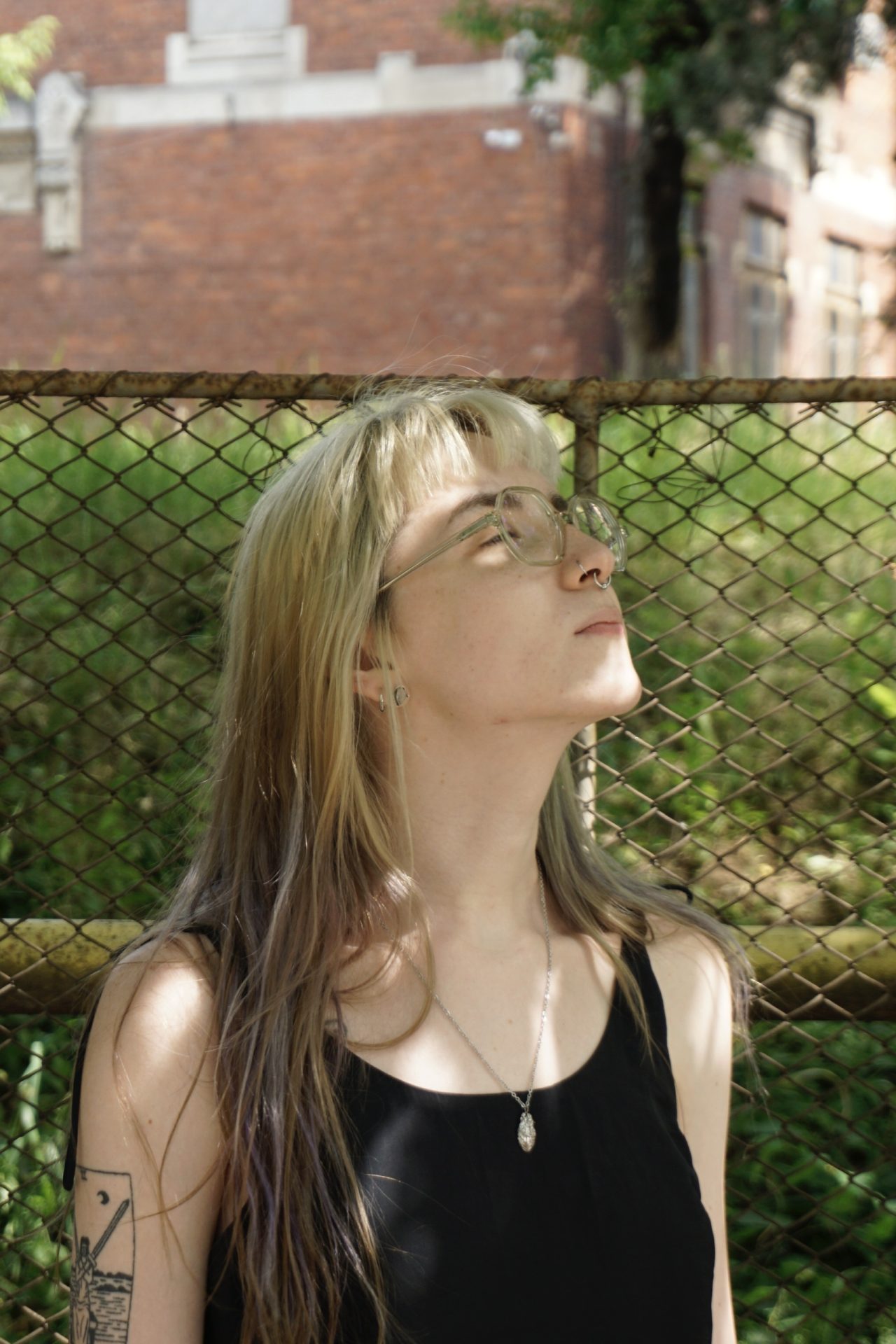
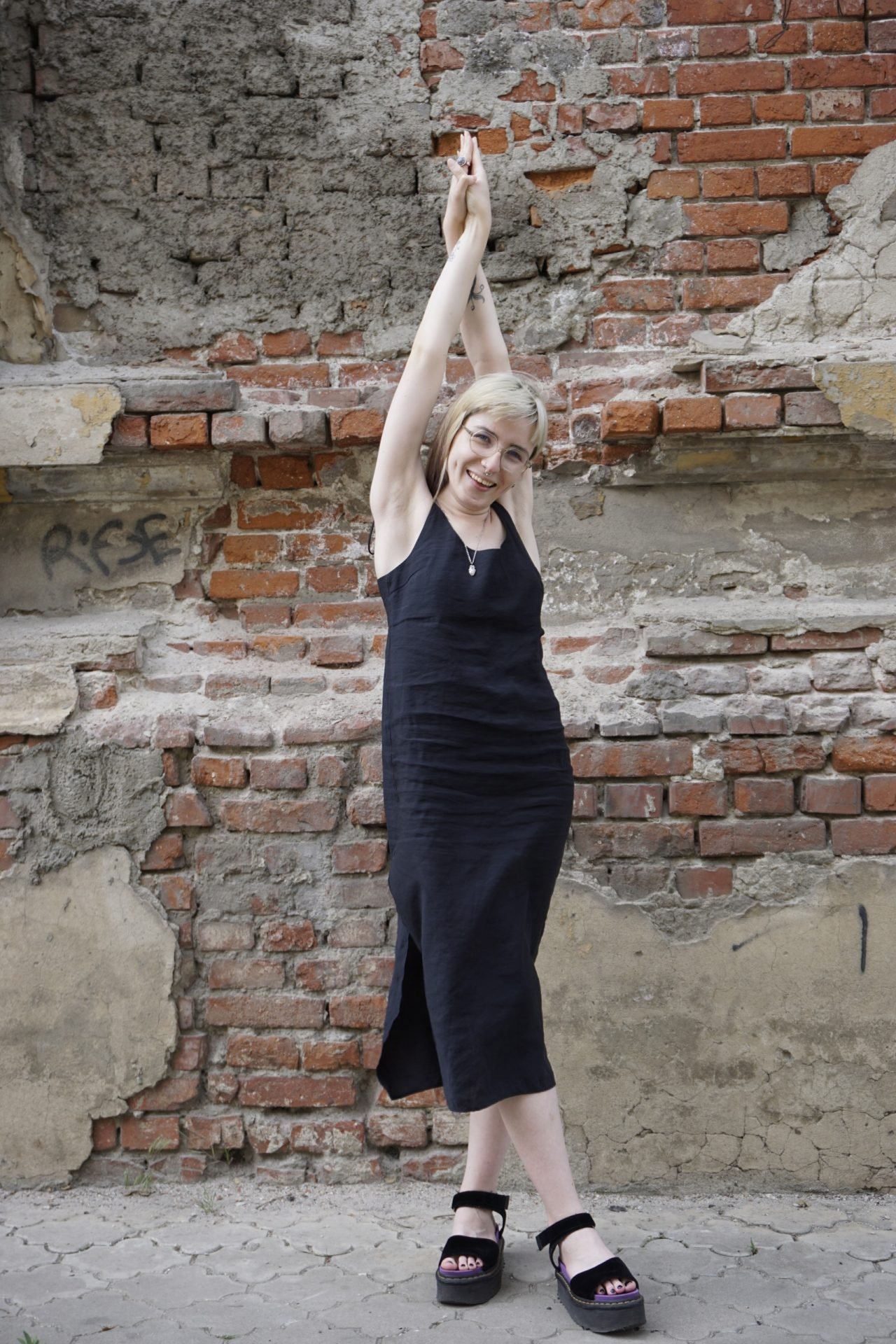
I met Iris a few years ago at Manasia Hub, a terrace hidden among the winding streets of Bucharest, where queer-friendly parties have been organized over time. Iris was in her first year at the Faculty of Psychology in Bucharest. With a warm, calm yet curious nature, she often wears diaphanous dresses with dark vaporwave accents, quickly immersing herself in the local queer art community. Over the past years, she has participated as an actress, writer, and playwright in several performance and independent theater projects, including Miraj. A possible space, Trepidations/Antigen/Perfect Time, part of the Triumf Amiria project;The Museum of Queer Culture and the show With Every Touch we Will be Reborn during Bucharest Pride 2021. They presented archival materials and subjective narratives centered on representative moments from local queer history.
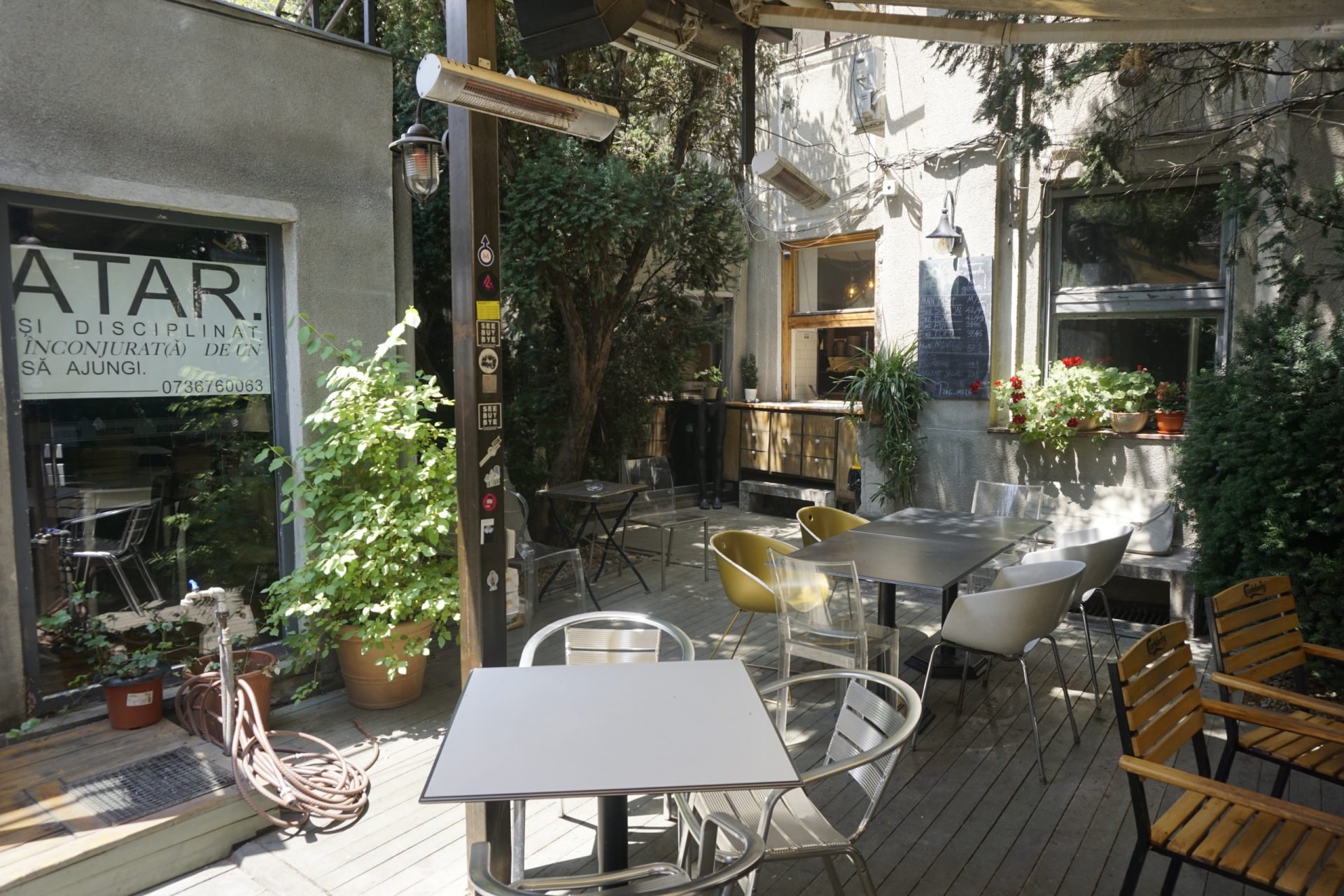
At the beginning of my transition, I felt that anonymity offered me the most safety. Coming from a small town, it felt liberating at first to be able to exist in a space where I could move, unfold, make mistakes without my decisions being scrutinized at every turn… Over time, I came to realize that the safest option was and is within the community. Here I am given enough space to discover myself, process, and (re)integrate traumas, acquire new understandings about who I am and what my needs are, and how I can relate to the people around me, so that my needs are fulfilled and restructured appropriately. And I still strongly believe that there is no emotional safety more valuable than being given space for understanding and healing. I’m glad I’ve reached the point where I can actually call this city (and especially its people) – my home, my safe place.
— Iris Horomnea
My home. My safe space. The phrase took a nostalgic thought to Macaz Bar Teatru Coop, a space I adored, which for many meant home. A self-managed theater-bar, a cooperative with horizontal organization, an inclusive space – until 2019 when it closed. There we rejected all racist, misogynistic, homophobic, transphobic, xenophobic, etc. behaviors and attitudes. A place whose absence we feel deeply because it gave us the opposite perspective: it was not a place that existed by virtue of the market economy, open only to profit. Rather, it was a place with honest prices whose economic activity was motivated only to the extent that it provided the possibility of paying the rent and the utilities of the space created for the community, for the people, for their safety and joy. To keep such a place alive was not easy. And with the pandemic – impossible. On a hot summer night, I met Nanci and so many other splendid people on the improvised terrace on the stairs of Macaz Bar, amidst the songs of loud manele (a genre of Romanian music usually sang and produced by Roma people) and the creaking rails of tram 21. We had the chance to get to know each other better and create our joint project CUTRA, a queer feminist magazine.
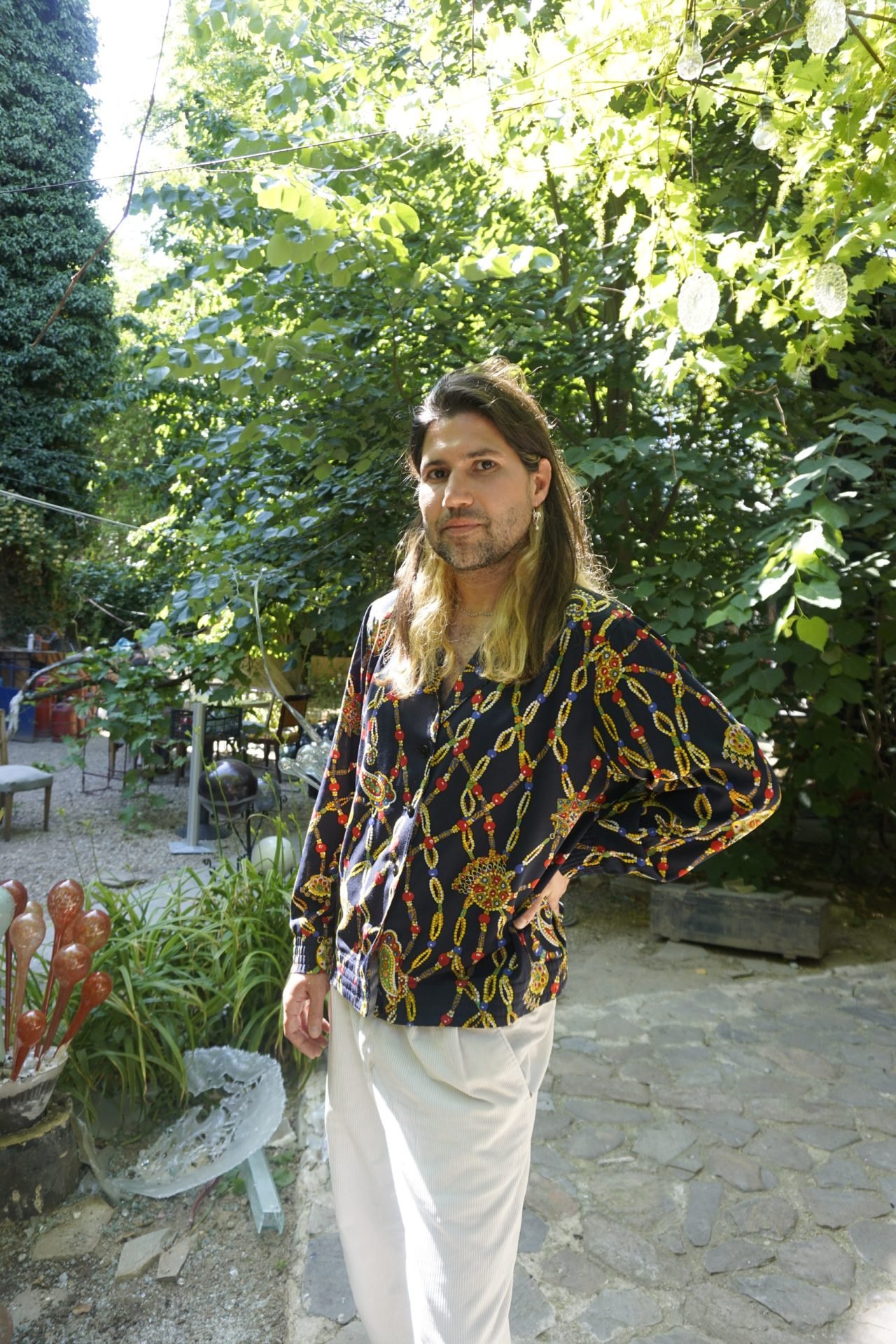
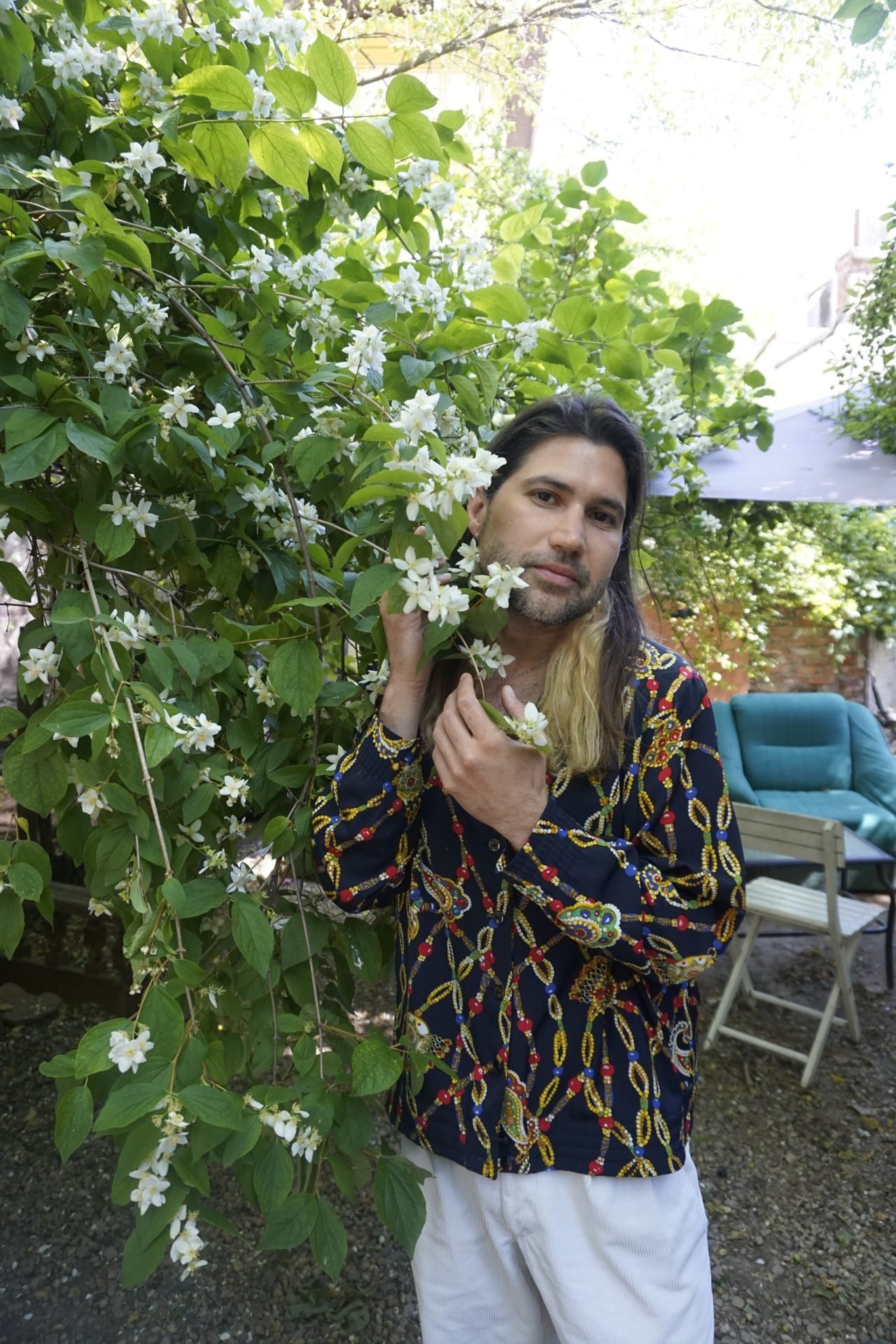
Now, when we met, the light was falling beautifully on Nanci’s vintage shirt. I was on a terrace with many glass objects, reflecting the noon rays. Nanci is a non-binary, multidisciplinary person. Cartographer, dancer, and choreographer, curator and manager of cultural projects. A presence whose vivacity you cannot forget. An enthusiasm that stays with you. For them, the safety of queer spaces has a concrete, practical, applied dimension.
A queer safe space is a place where every person can be themselves without fear of judgment, discrimination, and harassment. I want safe spaces everywhere in society – equal access to quality medical services, easy access to contraception and abortion services, legal recognition of LGBTQIA+ couples, and equal rights with heterosexual couples + inclusive and feminist education.
Although still few places and queer initiatives have a major impact on the wider society, I have the feeling that things are moving in a positive direction. I trust the young generation. I trust that we will build more and more queer safe spaces that provide access to resources, including financial and support for community members, counseling services, support groups, and access to information.
— Nanci
We have a support network, I think. At the same time, I know that more can be done. Two non-governmental associations based in Bucharest, MozaiQ and Accept, fight for the rights of LGBTQAI+ people. Others, from other centers of the country, do the same. Sens Pozitiv offers support to people diagnosed with HIV. E-Romnja, a Roma feminist organization, fights for the rights of Roma girls, women, and queer people. Self-organized DIY centers like Filaret 16 have non-discriminatory policies and “bring people together with a common goal: questioning the status quo and building alternative ways of living and spending time together.”
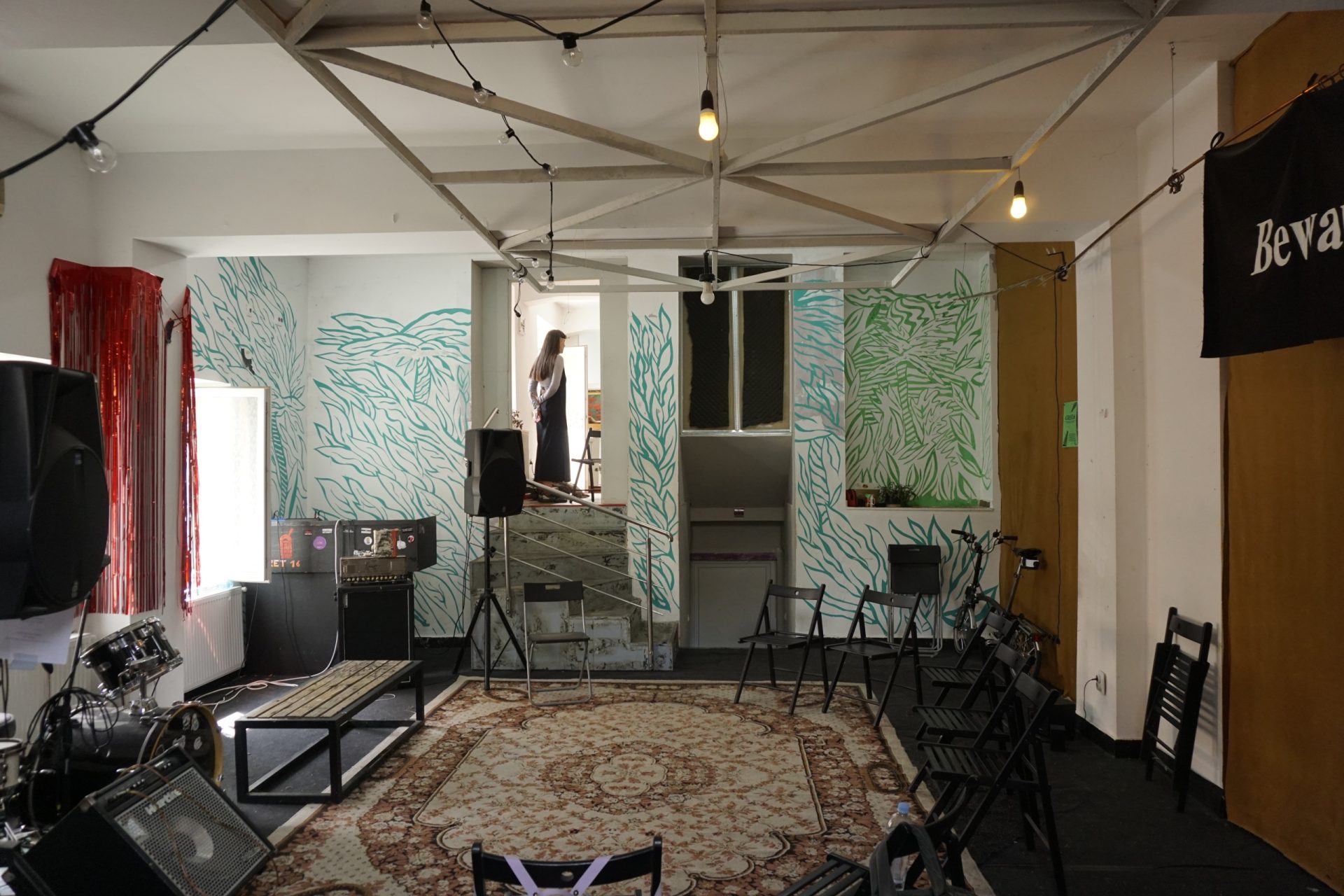
Friendly institutions, such as the National Dance Center of Bucharest (CNDB) and the Replika Educational Theater Center, support queer theater performances and other cultural-artistic initiatives of the community. This year, for the first time at the Uniter Gala, British Council Romania offers an award for a performance-manifesto with and about the transgender community in Romania – TransLucid – for the promotion and support of social inclusion.
The last time I saw Patrick, a trans filmmaker, was in the transLucid show. I greatly appreciate his power to work towards the cohesion of the local trans community and his ability to give hope to trans people that Romanian society can be home for them too. I would have loved to meet him one of these days for a summer lemonade, but this time we only got to talk through texts. He was leaving the city – Pride week had started in Iași and the next day the march was taking place there, the 3rd edition so far.
Only in safe queer spaces does my trans identity find peace and fulfillment, because there I am, finally, among “my people.” I know that a space is safe because my anxiety is gone, there is no more pressure to perform a role; instead there is the freedom to experiment and have fun in new ways, with a lot of creativity, assumption and assertiveness. In necessarily queer safe spaces I can simply be, as I feel others feel.
— Patrick Brăila
Another person I care about very much and whose presence in the artistic environment has given our queer scene a lot of visibility is Paula Dunker, my Libra sis, with whom I have spent endless moments over the past 10 years and to whom I am grateful for the strength and perseverance with which she inspires an entire community. When we met in Ioanid Park, she was wearing a pale purple transparent tank top and loose white pants. We took pictures, ate sourdough bread on a bench, and laughed. To me, Paula is always like a breath of fresh air – refreshing.
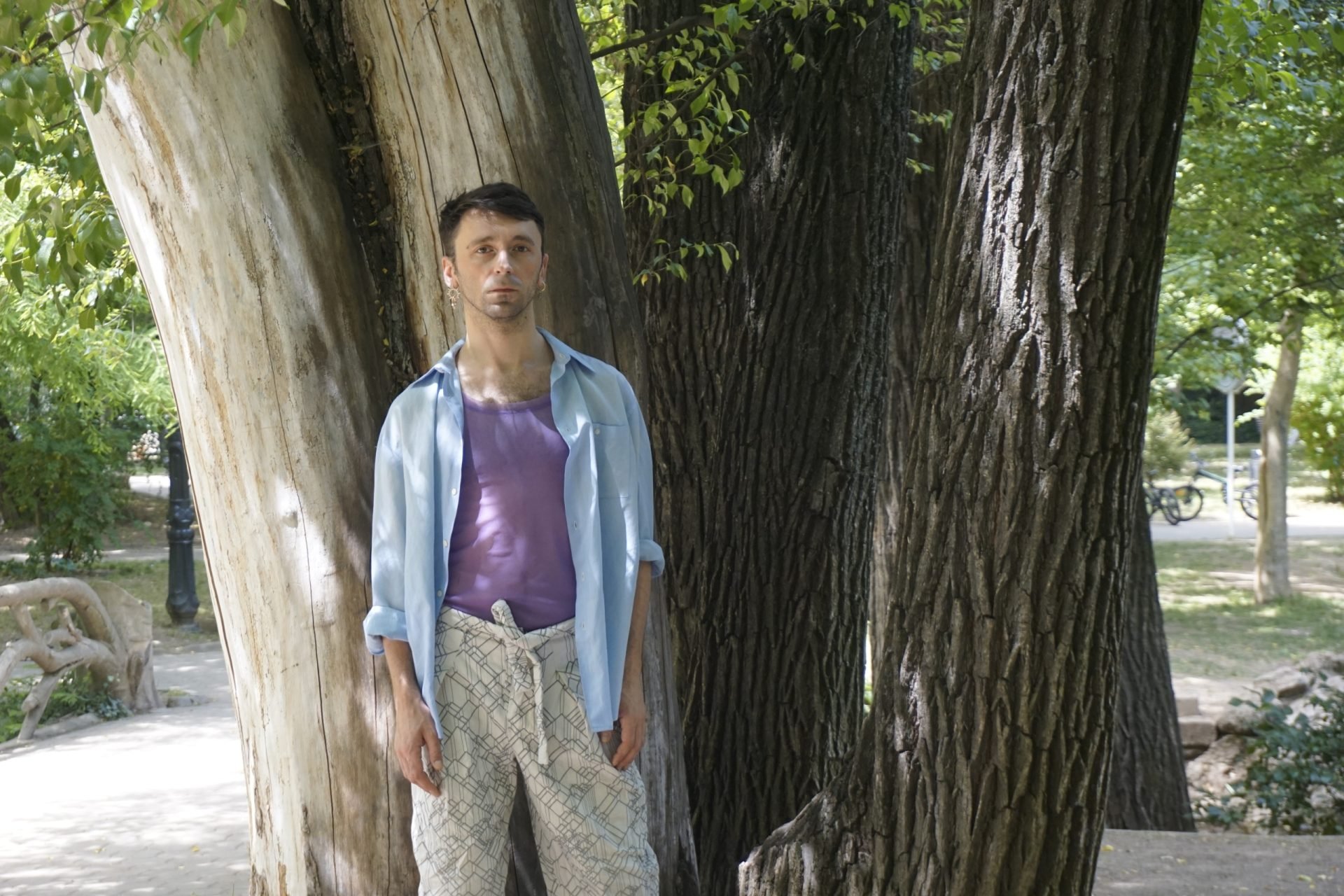
Paula Dunker is the vocalist of the queer act FLUID and, as she calls herself, “the mother of the techno-faggothique musical genre and lifestyle,” but also the mother of the party series Queer Night (since 2010). She is a writer, performer, choreographer, playwright, actress and part of the CorpFluid collective – “a community digital space that questions and explores the relationship with one’s own body, but also the factors that influence the social models of relating to the body, emotions and self-image.”
Someone once said that there are no 100% queer safe spaces – there are spaces that are safer than others. The only constant in this work-in-progress is that the production of queer safety is always contingent, negotiated, and fragile, and does not attempt to reproduce already existing power structures. (…) Queer safe(r) spaces propose an intersection of its physical, discursive, rhetorical, virtual, material, emotional and imaginary capacities.
— Paula Dunker
That being said, I’m taking a moment to bring up the concept of intersectionality. Let’s reflect on it together. One’s identity is never one-dimensional, but has several sides that can simultaneously represent discriminatory factors in a social setting. Gender identity, ethnicity, education, socio-economic status, romantic and sexual orientation, physical ability, mental health, religion, residence (migrant status) – all can be fundamental to a person’s identity, and can lead to discrimination.
People who identify as Roma and queer suffer not only from racism but also from a “lack of information about the history of Roma in Romania.” They also face oppression based on their gender or sexual orientation. In this framework, what does a queer safe space mean for Roma LGBTQAI+ people?
I discussed this with Cristina, a queer Roma who describes herself as “non-binary in gender, thought and expression and in constant transformation and search for cool vibes.” For her, the multilateral aspect of discrimination is also reflected in the description of a queer safe space.
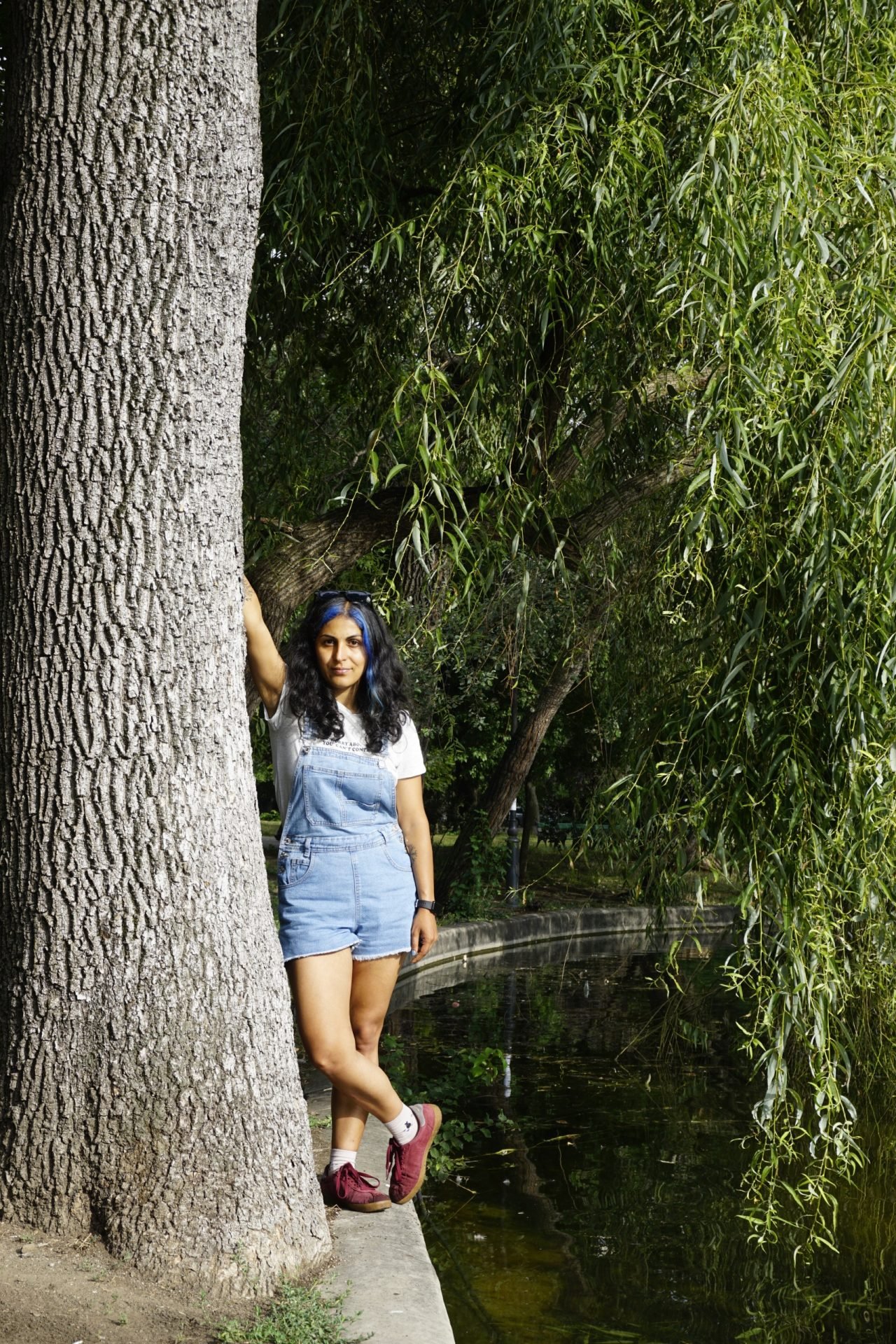
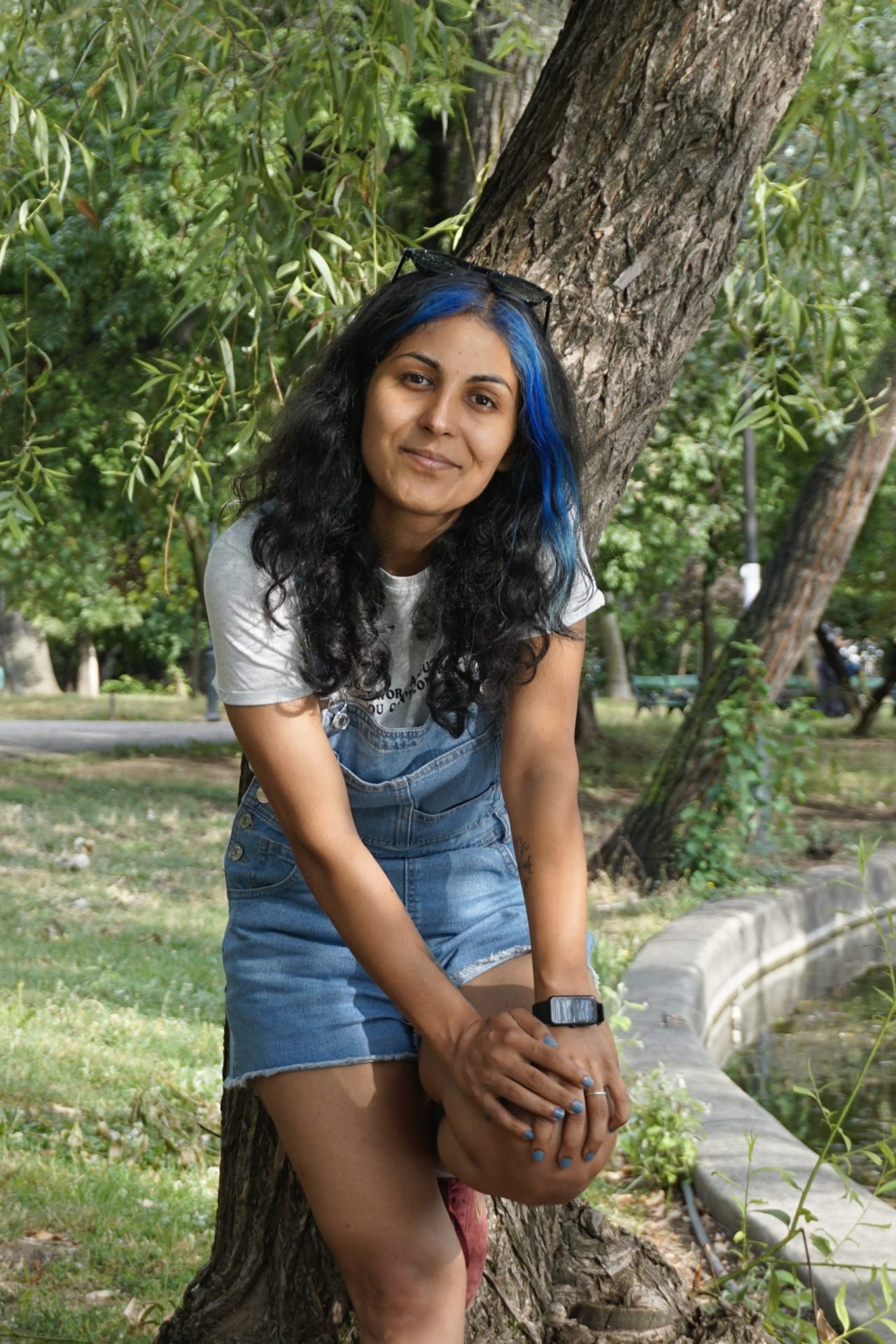
We met at Cișmigiu Garden, one of the city’s most famous parks. And I immortalized the moment under the sentimental green trees of the oldest public garden in Bucharest, near the brightly colored terrace of the Apollo 111 bar. This place hosts parties every week, and many of them are LGBTQAI+ friendly – Dirty Disco w. Eugen Radescu, the series of ballrooms Lil’ Paris is Burning Ball or Viva la Diva, local drag show programs that bring the queer community into the spotlight and celebrate it.
Cristina is also a DJ – DJ Mitroi – and most often you can find her in the evenings, playing manele at Grădina ArtHub, a queer-friendly space committed to maintaining a safe environment for the community. Here, other Roma queer people, like Arhanghela and DJ Aldessa, with her feminist tracks, put together dance nights.
A queer safe space is a space where everyone’s rights are respected. It is not enough for the space to be queer-friendly to be safe. If it tolerates racism, classism, ableism… it’s not safe. Fortunately, although few, queer safe spaces are not just a utopia in Bucharest.
— Cristina Mitroi
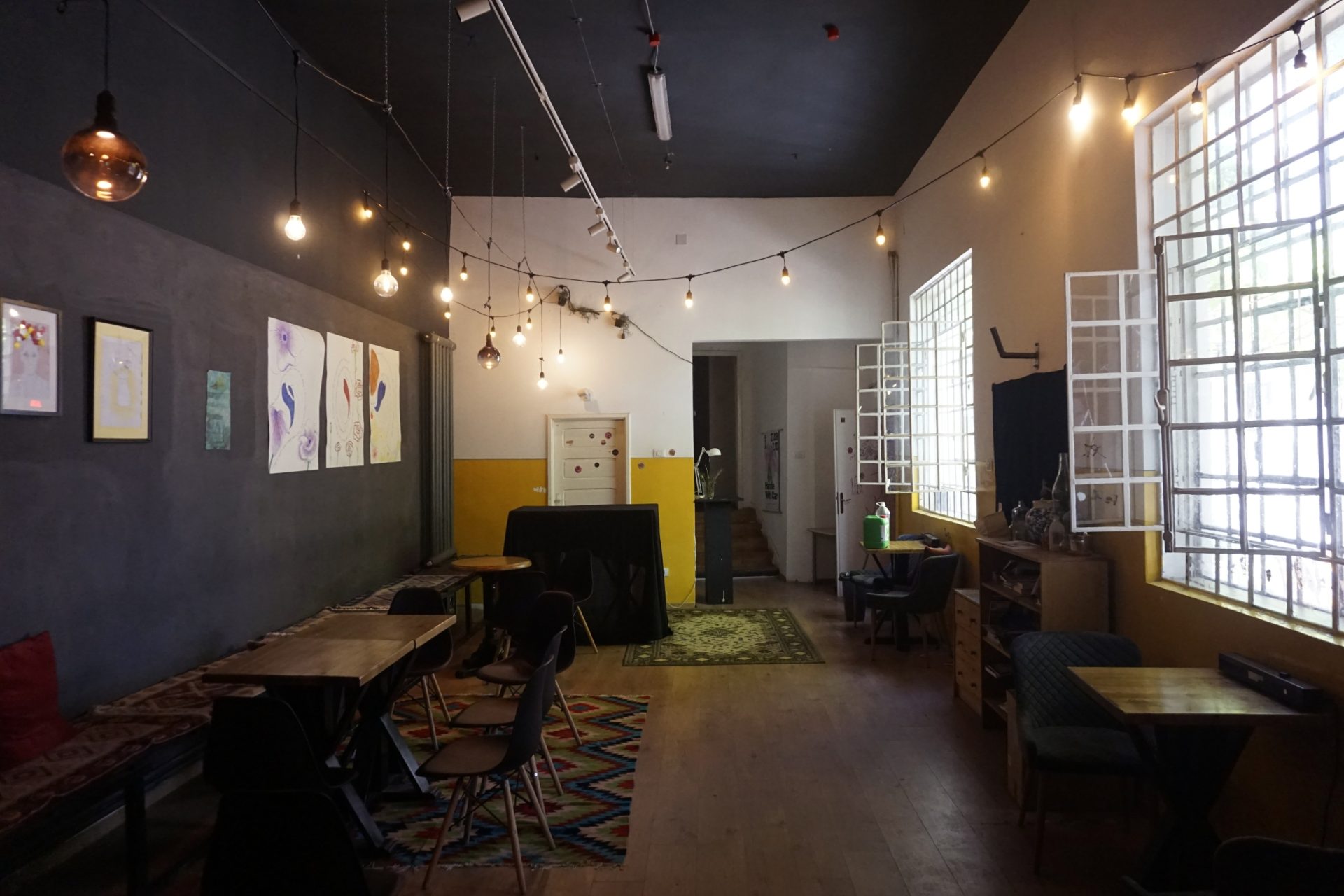
As I come to the end, I want to share the testimony of Luca, a young queer person who works at the Accept association and co-organizes the international queer film festival ART200. Luca coordinated the anthology, A Space Just Ours, by the HECATE publishing house, in which they brought to the forefront LGBTQAI+ love stories.
Although I have done it several times, both on the street and in many spaces around the city, I always sit with a small cloud of fear over me if I show affection towards a partner or if I expose my nails too much. A safe space is the space where this cloud of anxiety disappears and where I can be queer and express myself as such without any hesitation. It is the space where I know that, if I were to be assaulted in any way, those around me will be on my side, with me, and together, we will be able to recreate a sense of safety.
— Luca Istodor
I am writing this concluding paragraph while drinking ginger lemonade on the terrace of Londohome, a place like a sweet home, as someone wrote in a recommendation on social media. With decent prices and a friendly atmosphere where life stories flow freely, it’s the kind of place that invites you to chill, read a book, enjoy a glass of wine, listen to an indoor concert (they have many such events). As I write this last paragraph, I’m feeling grateful for the opportunity to bring up such a complex and important topic. I write with my retinas filled with the still raw green of the tree leaves, thinking of all my queer friends who have had the openness to meet and answer my questions. I’m thinking of the joy of going through this life together; of the efforts that will reward us deeply. I embrace meeting in our differences, non-divisiveness and reconnection, soft looks and tender hugs. Here’s to the evanescent lights of the city. To peace and cats. To openness and joy. To what was, what is, and what will be.
